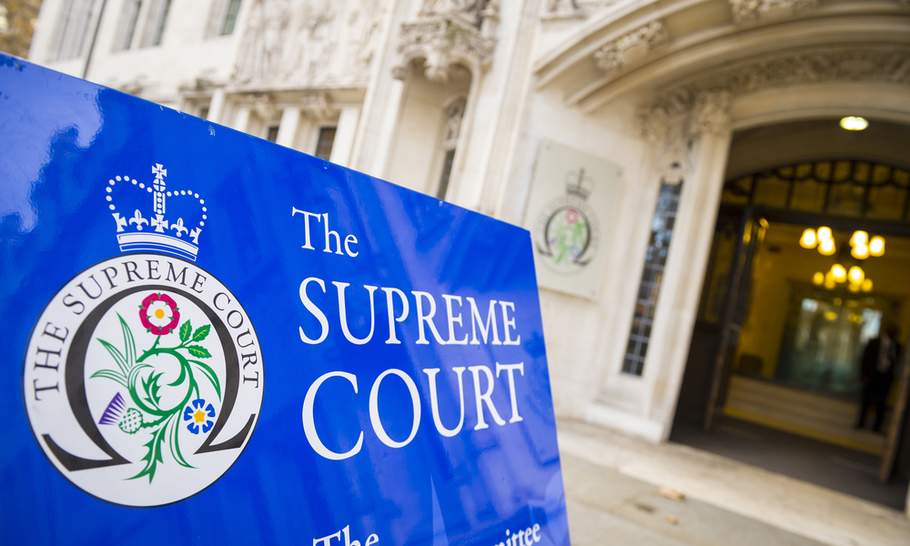Are we finally into the Brexit endgame — or another courtroom drama?

Supreme Court building in London (Shutterstock)
The Brexit endgame has been announced before — and it has proved to be premature. But there are signs that British and European Union negotiators are on the verge of engaging in serious talks to finalise a new draft Withdrawal Agreement before the EU summit. They have just over a fortnight: a tight but not impossible deadline, given that the main stumbling block — the backstop — is not a practical but a theological issue.
As was already clear a year ago, when Theresa May found herself boxed into the backstop, the bilateral British-Irish relationship ought never to have been subsumed into the UK-EU one. The 1997 Belfast (Good Friday) Agreement did require a substantial input from the Clinton administration, but the EU contribution was minimal. It may suit Leo Varadkar to solidify his own support by using Brussels’ big battalions to bully Boris Johnson, but no-deal will not suit either the Irish economy or cross-border security.
The leak to RTE, the Irish state broadcaster, of the British position papers that outline possible methods to avoid border checks was an example of Varadkar’s grandstanding. This breach of confidence, which forced the British to disown the documents as “non-papers”, enabled his Foreign Minister, Simon Coveney, to tweet: “Non-Paper = Non-Starter…NI and IRE deserves better.” His stance is as unfriendly as it is ungrammatical. Both nations do indeed deserve better — but that will only happen when Dublin is forced to desist from its game of exploiting Brexit to realise its dream of a united Ireland. From the Battle of the Boyne to the Easter Uprising, Irish nationalism has created an entire mythology around the notion of allying with Continental powers against the British. It never works and it is usually the Irish who pay the heaviest price.
The British, meanwhile, are focusing on persuading Emmanuel Macron and Angela Merkel to sign up to a grand bargain. Boris drops his threat to withhold much of the £39 billion divorce bill, while Emmanuel and Angela scupper the “surrender Bill” by refusing to grant any more extensions. Parliament is forced to choose between the Boris deal, no-deal or revoking Article 50. This has been the French policy since last March and the Germans are coming round to it. Brexit takes place on time at the end of October and Europe can finally move on. Only the backstop stands in the way of this dream scenario — and there is no way that Paris and Berlin will allow Dublin to block a reasonable compromise.
In Westminster, some members of the Opposition have anticipated this or some similar manoeuvre to deliver on the new Tory slogan: “Get Brexit done”. That is why moves are afoot to organise a vote of confidence or, failing that, other proceedings (including impeachment and criminal prosecution) against the Prime Minister.
But Boris Johnson is not merely a spectator of these attempts to deflect him from his mission. He has let it be known that he would appear before the Supreme Court to argue the case against the legality of the Benn Act, if someone were to bring such a case. The Prime Minister would presumably argue that there is no precedent for Parliament to tie his hands in negotiations with a foreign power in this manner. So far in the Brexit saga, the Supreme Court has found against the Government twice, though the High Court did dismiss an attempt to annul the referendum. Boris is eager to even the score. As the Brexit endgame approaches, the biggest courtroom drama may be yet to come.





